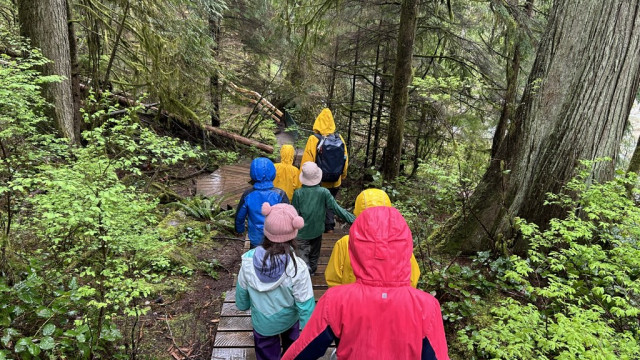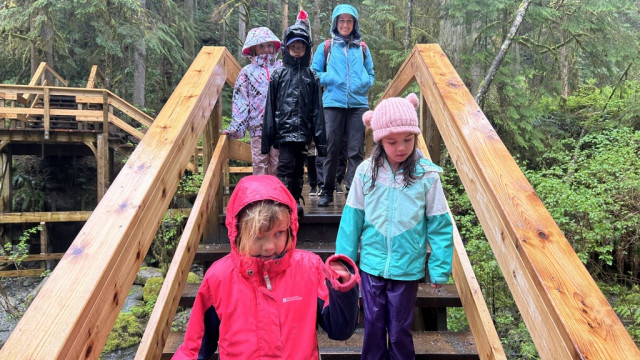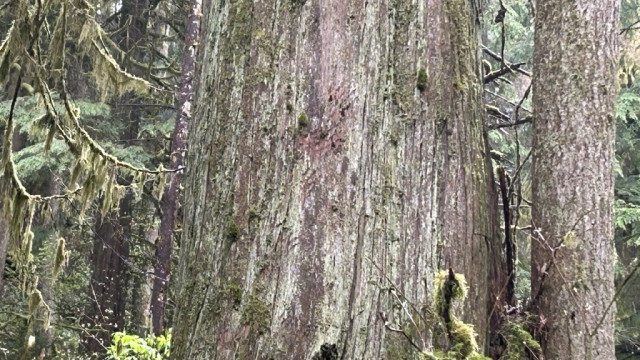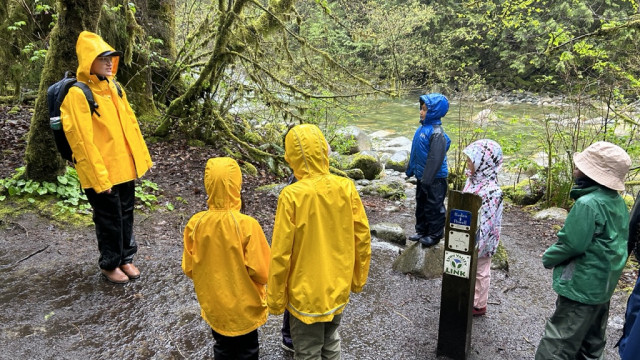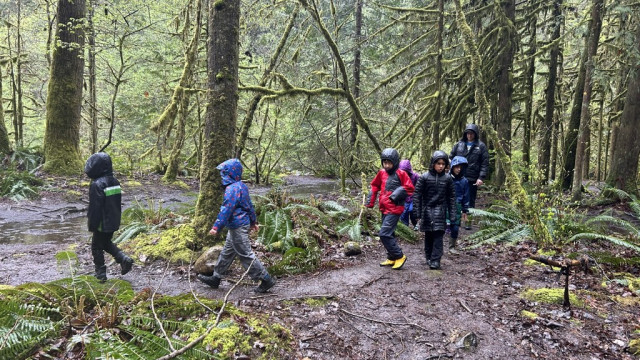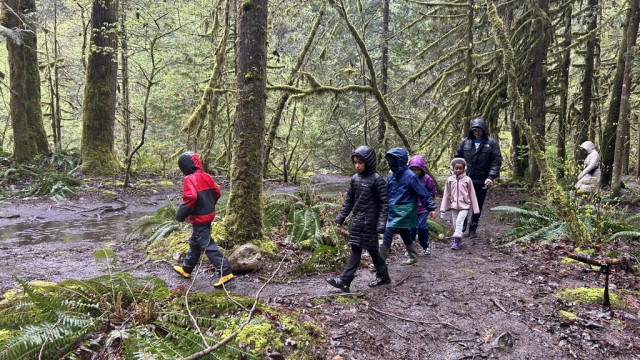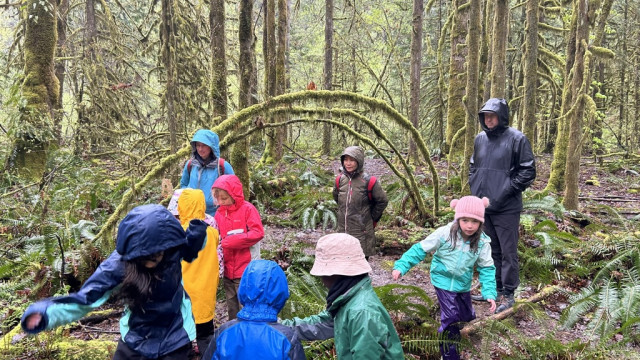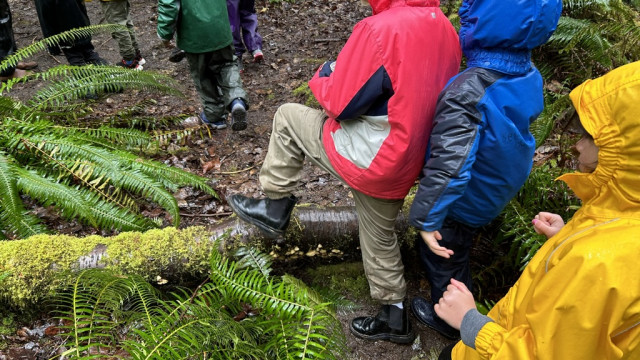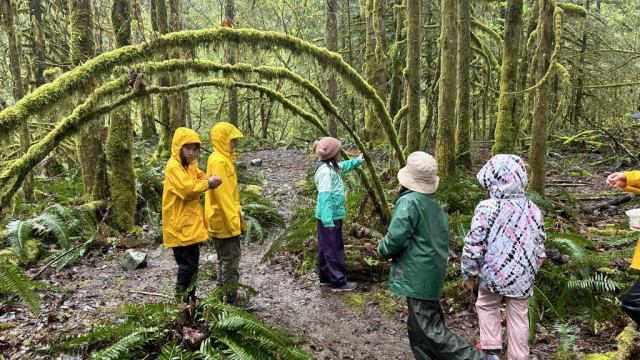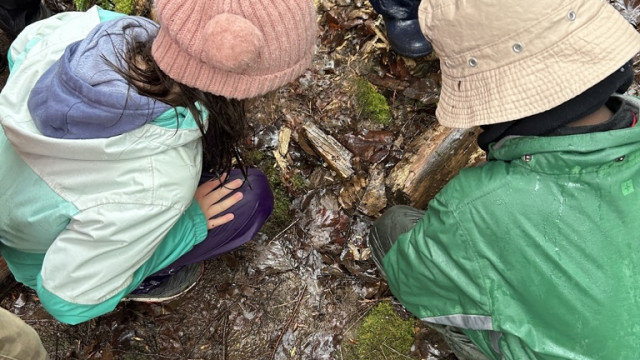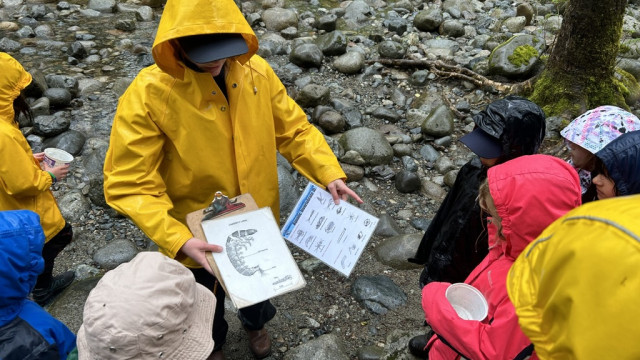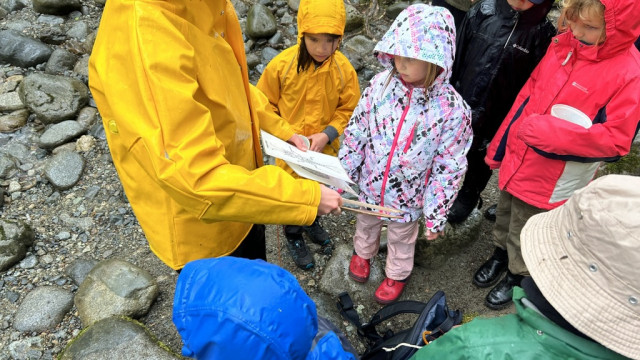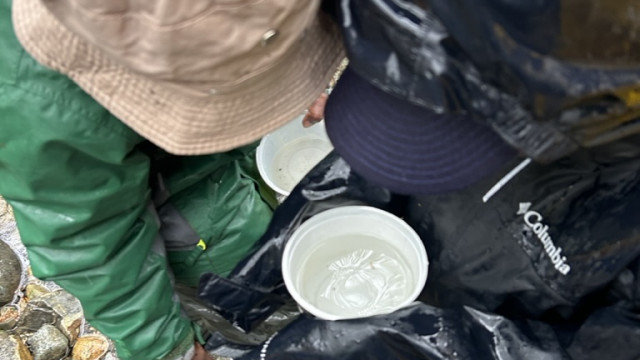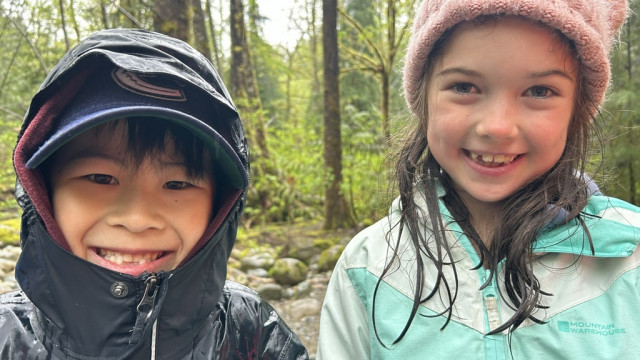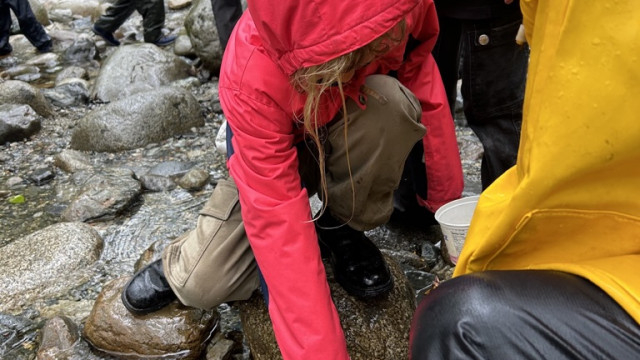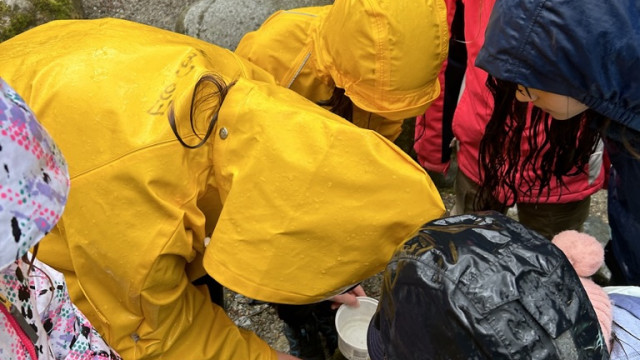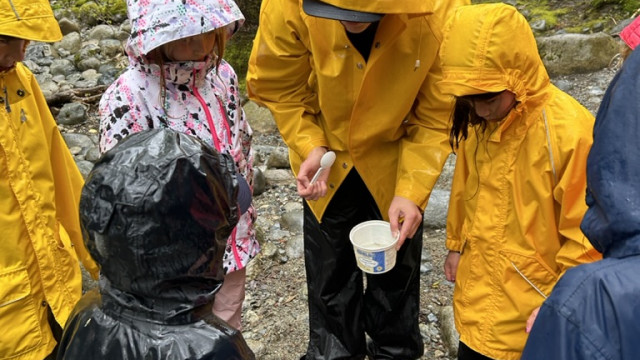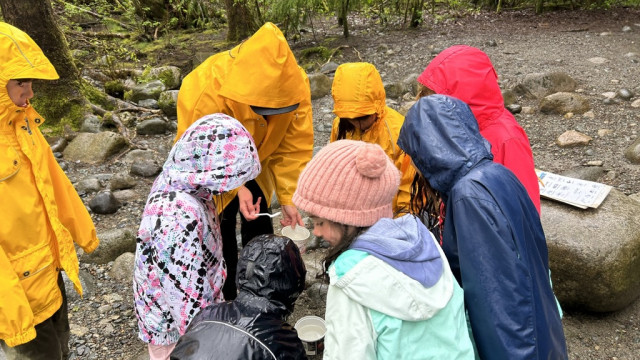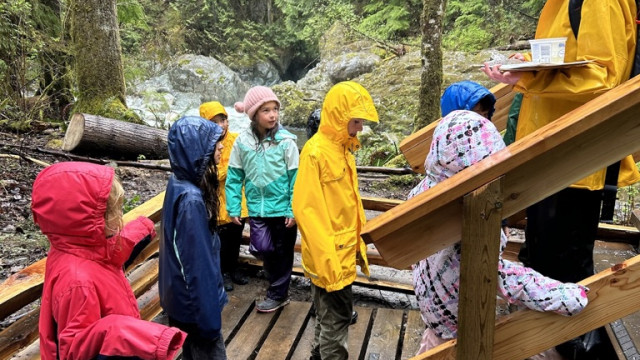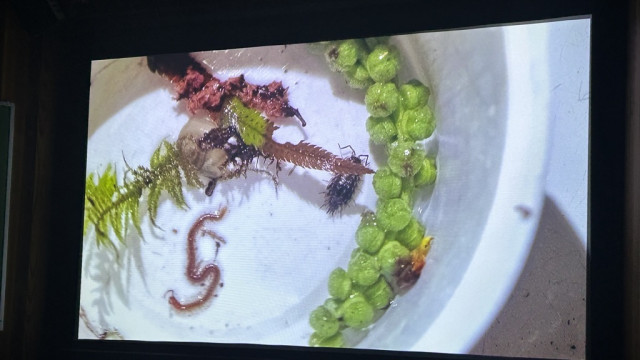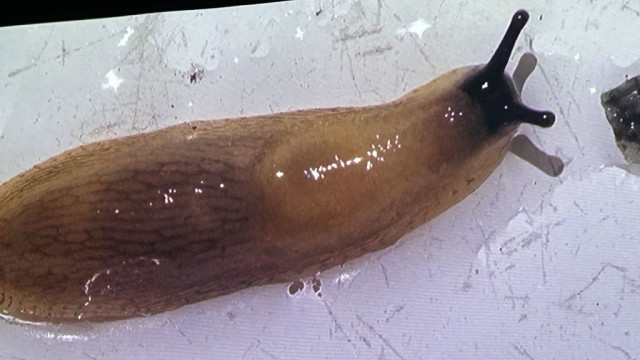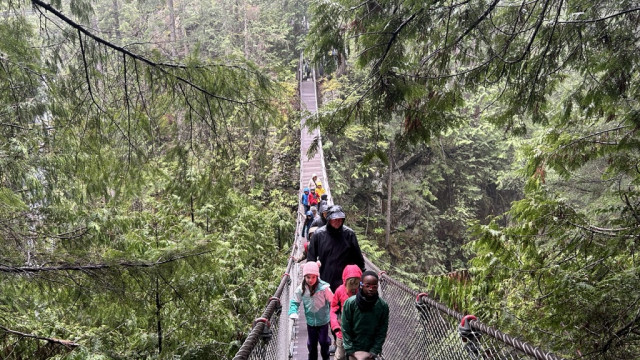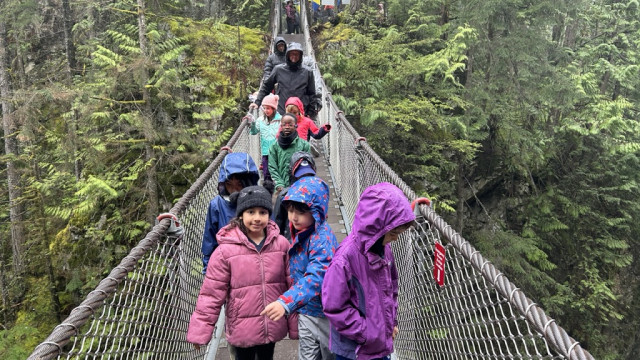On Wednesday, we took our learning outside for a nature walk with Ms Ballarin’s class. We look forward to many opportunities this year to provide students with outside learning lessons. We asked your child to discuss with you what they discovered on our walk down to the park and to share why they picked their three different items. The students in their groups were encouraged to guess which area of the park or walk that their items came from. Stay tuned for more outdoor learning and for more information about our upcoming tree study.
Big Ideas:
- Living things have life cycles adapted to their environment
- Objects and shapes have attributes that can be described, measured, and compared
- Effective collaboration relies on clear, respectful communication
- Designs grow out of natural curiosity
Curricular Competencies:
- Explain how participation in outdoor activities supports connections with the community and environment
- Use Social Studies inquiry processes and skills to ask questions; gather, interpret and analyze ideas; and communicate findings and decisions
- Engage in problem-solving experiences that are connected to place, story, cultural practices, and perspectives relevant to local First Peoples communities, the local community, and other cultures
- Demonstrate curiosity and a sense of wonder about the world
- Experience and interpret the local environment
- Compare observations with those of others
- Generate and introduce new or refined ideas when problem solving
Learning Involved:
- Experience and interpret the local environment
- Exchange ideas and perspectives to build shared understanding
- Develop and use multiple strategies to engage in problem solving
- Recognize the relationships between people and the environment in different communities
- Compare observations with predictions through discussion
First Peoples Principles of Learning:
Learning ultimately supports the well-being of the self, the family, the community, the land, the spirits, and the ancestors
- Learning is holistic, reflexive, reflective, experiential, and relational
Core Competencies:
Critical Thinking
- I can ask questions and consider options. I can use my observations, experience, and imagination to draw conclusions and make judgments
Creative Thinking
- I get new ideas when I play and explore
Communication
- I can share my ideas and questions
- I can listen to others
Social Responsibility
- I am kind to others and our environment
